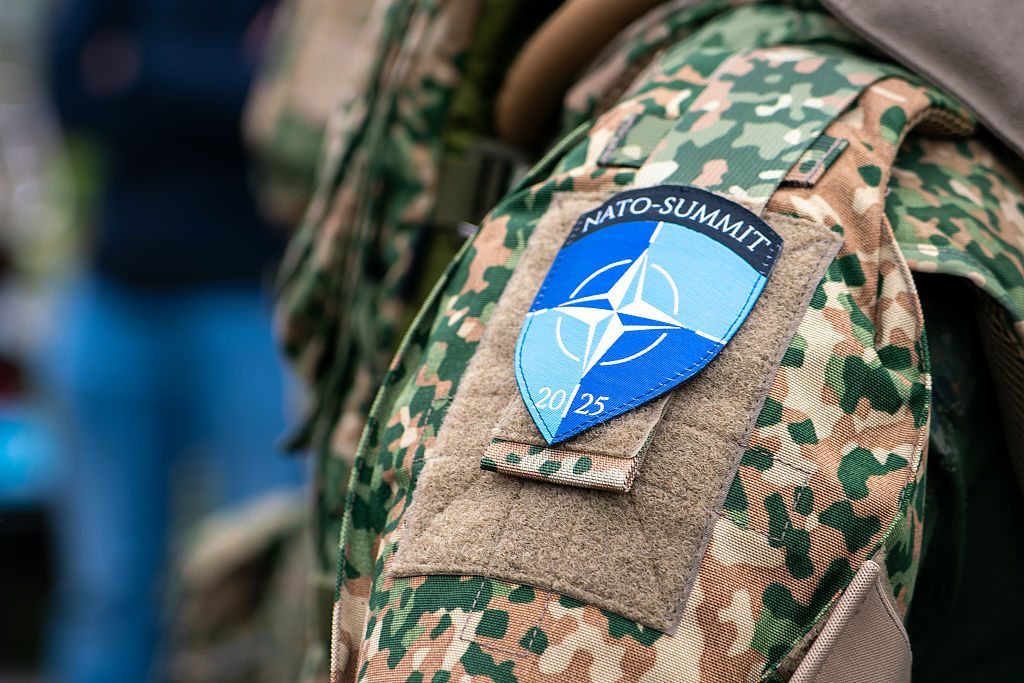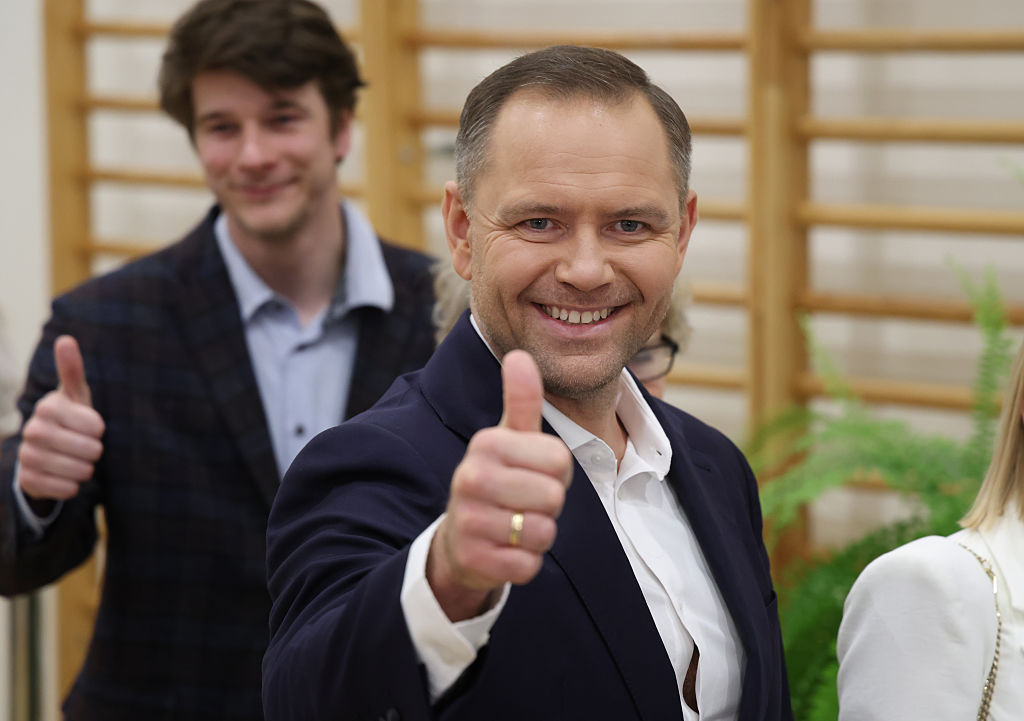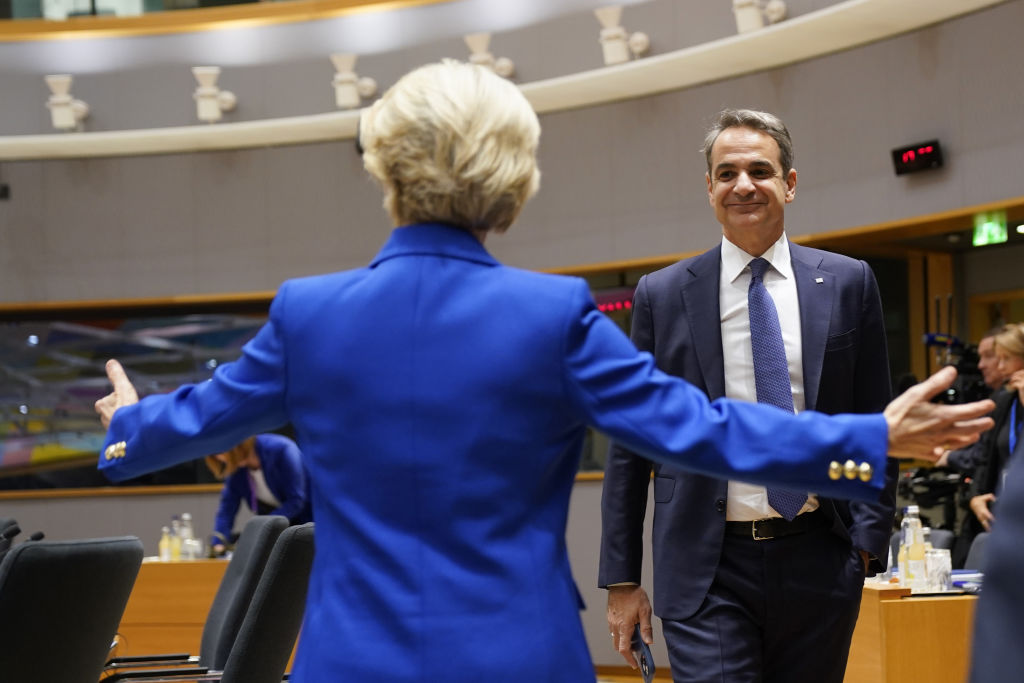Denmark took over the rotating presidency of the European Council on July 1. This puts Prime Minister Mette Frederiksen in charge, which sounds straightforward enough, until you consider the distinctive twists in Frederiksen’s character.
As a Danish journalist, I have watched her political career since before she became leader of the Social Democrats in 2015 and then prime minister in 2019. Look out for these three things in Frederiksen’s Council behaviour: First, she behaves like a political bulldozer, hesitant to admit mistakes. Second, she has a skill for flip-flopping on important policy areas. Finally, she has a habit of insisting on constant crises (a prominent EU trait to look for a crisis to “solve”).
Let’s start with the bulldozing leadership. Much like Commission President Ursula von der Leyen, the Danish prime minister is notorious for her strong top-down control, sometimes bulldozing colleagues who dare to question her leadership. An example came just a few days ago, when Frederiksen made clear she would not be an honest broker during the Danish presidency of the Council: “No, I really won’t be an honest broker,” she stated, stressing the need for Denmark to present clearly a direction for the EU and then try to gather support among Member States.
So, not an honest broker. At least she admitted it.
This love of control is famous – and dreaded – in Denmark. Earlier this year, Rasmus Prehn, a former minister under Frederiksen’s first government, lambasted the centralised control exercised by the Danish leader. The Social Democrat’s top-down management style allegedly prevents important and democratically inclusive debates, according to Prehn, who has now left politics.
Similar statements have been made by Social Democratic MP Bjarne Lausten. He emphasised that lower-ranking party members sometimes feel “powerless and frustrated” while waiting for the next order from the top. Complementing her fondness for control is a lack of tolerance for dissenters. Back in 2018, a member of Frederiksen’s own party, and a former minister, Mette Gjerskov, was removed from her position as spokesperson for development because she publicly refused to toe the party line, which supported a ban on face coverings, including burkas.
Similar to von der Leyen’s reputation, the Danish Prime Minister also often avoids owning up to major mistakes. Most famously, she illegally ordered the national culling of around 14 million minks, effectively closing a historically significant Danish profession. Despite scientific doubt as to whether it was necessary, and a huge economic backlash, she still insists it was the right decision. However, due to the illegal order, given on national television by Frederiksen herself, the Danish state has since been forced to compensate mink farmers between €2.5–€3.5 billion.
As for her flip-flops, both as prime minister and politician, Frederiksen has become known for shifting political stances while avoiding major public backlash. Her ability to flip-flop on key issues has allowed her to stay relevant, recently celebrating her 10th anniversary as party leader.
Allow me to elaborate: When Frederiksen first came to power in 2019, Danish media dubbed her the most EU-sceptical prime minister ever. Shortly after forming a government, EU negotiations on the multiannual budget (2020–2027) were reaching their crescendo. As a member of the so-called “frugal four” alliance, opposing increases in national contributions to the EU, she called the idea of such increases “completely crazy”. Yet today, Frederiksen has left the frugal alliance and even opened the door to backing new common EU borrowing, a repetition of the EU’s pandemic joint-debt venture.
Her shift on migration policy is another fundamental change, a move that helped secure her first term as prime minister. As a newly elected politician in 2001, she vehemently opposed tough migration policies. Frederiksen even criticised her own party for politically competing on such issues, saying: “Every time we take a step to the right, there are others who take two. We can’t win that fight.”
Fifteen years later, she did exactly that. In an attempt to win back voters from the migration-critical Danish People’s Party (Dansk Folkeparti), she pushed the Social Democratic Party towards a harsher migration stance. Recently, Frederiksen expressed hope that European social democrats would also support stricter migration policies. The statement was accompanied by a joint announcement by her and right-wing Italian leader Giorgia Meloni, calling on the European Court of Human Rights to allow the expulsion of criminal migrants. Frederiksen has also been known to waver between prioritising climate-first policies, then social-first, and now leading a centrist Danish government that includes the right-leaning liberal party, Venstre.
Finally, political commentators in Denmark have for years highlighted Frederiksen’s willingness to utilise crises. Since the Covid-19 pandemic, the prime minister has leaned into rhetoric that paints a grim picture of the world, often followed by supposedly necessary political action. She seems even to utilise the war in Ukraine: International relations professor Ole Wæver, known globally, has criticised Frederiksen for her exaggerated war rhetoric, for instance, hinting towards a possible Third World War and a direct military conflict between Denmark and Putin’s Russia.
Moreover, Frederiksen has claimed that Danish intelligence services assessed that Russia, “is preparing for a war against NATO”. This is a claim not substantiated by the conclusion of the latest reports from the Danish Defence Intelligence Service. The former head of the intelligence service, Lars Findsen, has been vocal about the fact that the recent report only assessed that Russia was likely to have the military capacity to attack a NATO country. It did not assess Russia’s or Putin’s intent to do so, unlike what the Danish Prime Minister asserted.
And much like the killing of millions of minks was deemed necessary by Frederiksen, so was the extremely unpopular decision to abolish a religious holiday in Denmark. The main argument was that Danish workers needed to work an additional day a year to generate money for the state coffers to finance a surge in defence spending.
However, it soon emerged that the state had ample funds to deliver on Danish rearmament and other political priorities. Still, Frederiksen maintains the holiday was a necessary sacrifice.
She also reprimanded Danish workers for wanting to work less in the light of Putin’s war against Ukraine and the Russian war machine. The remarks drew criticism from politicians who questioned the link between domestic working hours and the battle against the Russian invasion.
Many media pundits speculate Mette Frederiksen consciously paints the picture of a world in crisis because she historically receives more support from Danish voters in times of crisis.
By January, Europe will be able to assess whether Frederiksen’s leadership of the Council presidency has been shaped by her three usual traits. Chances are Europeans will be more familiar with Frederiksen’s distinctive brand of power politics.





Want to exercise freedom of speech? Not when European lawfare cuts your throat